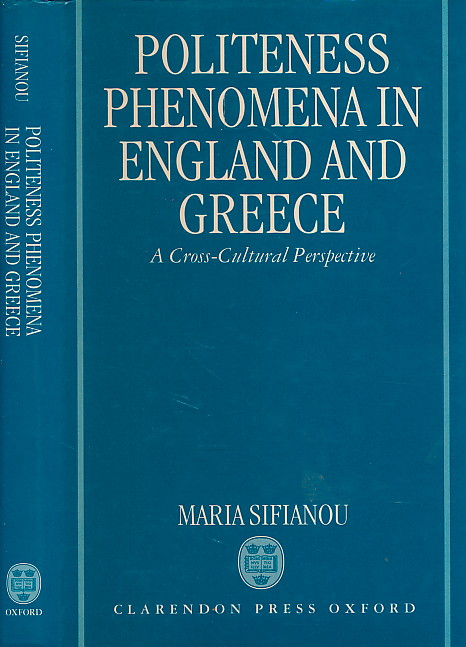Politeness phenomena in England and Greece
€10,00
Nema na zalihi
| Težina | 668 g |
|---|---|
| Format | 14 × 22 cm |
| Autor | |
| Izdavač | |
| Mjesto izdanja | Oxford |
| Godina | 1992 |
| Broj stranica | 254 |
| Uvez | Tvrdi |
| Stanje knjige | Vrlo dobro |
Politeness is crucial to successful communication and is consequently of great interest to those who study language in its social context. This book presents the first application of Brown and Levinson’s ground-breaking theoretical work in a full-length comparative case study. Maria Sifianou draws her data from a variety of sources, including literature (particularly drama), questionnaires, and personal observation. She attempts to discover the principles underlying social interaction in both intracultural and intercultural contexts, and discusses the extent to which the concept of politeness is common to different cultures. She argues that politeness is conceptualized differently and thus manifested differently in the two societies under study: Greeks tend to use more „positive“ politeness devices than the English, who prefer more „negative“ devices. Positive politeness is more closely related to friendliness, negative politeness to formality. Sifianou’s analysis illustrates and supports the general claim that, despite popular stereotypes, there can be no objective verification for the view that one nation is more polite than another.
